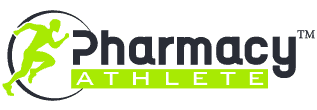Pharmacists role in sports pharmacy
The roles of pharmacists have emerged in the field of sports pharmaceuticals, including doping control. With the increasing use and abuse of drugs and nutritional supplements in sport, pharmacists can play a key role in discouraging illegal drug use and preventing unintentional use of illicit substances by athletes. Sports pharmacy is a specialty of pharmacy practice, however, pharmacists may provide pharmaceutical care in a variety of settings and must take into account the special needs of athlete patients, including doping control issues. In all clinical settings, sports pharmacists can complement the work of the sports physician, physiotherapist, podiatrist, and other healthcare professionals involved in the care of athletes. Pharmacists can also use their drug expertise to participate in education and prevention programs for athletes at all levels of competition.
Sports pharmacy supplements
As the use of supplements and natural products among athlete patients increases, pharmacists can also play an important role in educating athlete patients not to commit unintentional doping violations. We must remember that patient education plays a huge role in promoting clean sport among athlete patients, and pharmacists have unique knowledge and training to help patients get through education. The role of pharmacists in the athlete health team is becoming an increasingly important component in the preparation of athletes for competition. Pharmacists provide direct training to athletes, coaches, instructors and other team members to ensure that the health and integrity of athletes is as important as their performance.
Anti-doping resources
Sports pharmacists work with athletes as individual patients, within a sports organization, in anti-doping agencies, or as part of the operational teams of outpatient clinics and sport event pharmacies. Using the anti-doping resources of the sport’s governing body and the anti-doping agency’s lists of what’s wrong, the sports pharmacist expertly recommends the appropriate medications or over-the-counter products for individual medical needs. A pharmacist with a background in sports pharmaceuticals can help identify, manage, and monitor athletes in need of performance-enhancing supplements who may otherwise experience side effects. The provision of drug information and educational services to athletes, coaches and fans may also fall within the scope of a “sports pharmacy“.
A broader role for sports pharmacists
In contrast to the unique environment of medical and pharmaceutical services at international matches, sports pharmacists must contribute to the health of athletes in a variety of other clinical settings. Sports pharmacists must be able to prevent the misuse of drugs and treat illness and injury in athletes through pharmacotherapy. Policies and procedures governing the outpatient pharmacy should be in place for all future games to ensure that pharmacists have the legal and regulatory framework to operate in the context of sports, clinical and anti-doping measures. It makes sense that the anti-doping system should use pharmacists to help educate athletes, advise on banned and over-the-counter substances, improve the knowledge of Athlete Support Personnel (ASPs) and work with team doctors.
Opportunities for pharmacists
While there are few opportunities to work with professional athletes, there are many opportunities for pharmacists to apply their knowledge and train with athletes. To a lesser extent, the role of pharmacists in various aspects of sports and competitive culture is limited in the literature, ranging from advising on non-competitive/individual fitness activities and local club sports, to advising elite athletes participating in the Olympics or other events.
Pharmacists can be trained and certified as drug test facilitators for a variety of sports organizations including the NCAA, NCDFS, Olympics, USADA, International Doping Testing and Management (IDTM) and professional sports organizations. For out-of-competition testing, assemblers should ideally be in close proximity to the athletes, as this process requires a brief notice to the athletes to be tested. Another way pharmacists can help athletes undergoing drug testing is to encourage them to contact their sports associations to make sure their medications and nutritional supplements are not routinely banned. According to Dr. Marina Suzuki, Associate Professor and Director of the Office of Global Pharmaceutical Education and Research at the University of the Pacific School of Pharmacy, anti-doping efforts will be made to promote “sporting spirit” among competing athletes. US Anti-Doping Agency pharmacist. Here, Dr. Marina Suzuki discusses the importance of anti-doping education and the role that pharmacists can play in increasing the awareness, knowledge and skills of pharmacists so that they can be champions in the fight for clean sport.
Sports pharmacists are specifically trained to recognize and avoid illegal prescriptions, recommend appropriate over-the-counter medications, and discuss the risks associated with nutritional supplements or nutritional products (we know high-performing athletes will use these and we cannot rule out the risk, Unfortunately ); meet special pharmaceutical needs; develop individual drug therapy goals in collaboration with physicians for exercise enthusiasts or athletes of all levels. The ASAP Pharmacy provides medical and pharmacological advice to individual athletes, sports teams and sports organizations.
The unique pharmacy environment of the Olympic and Paralympic Games highlights the importance of interdisciplinary collaboration between pharmacists and other clinical experts to meet the needs of athletes in this specialized international environment focused on sports medicine. By the end of the Games, more than 100 volunteer pharmacists had an advanced level of knowledge in sports pharmacology and were aware of the main clinical aspects of sports medicine, which allowed them to confidently contribute to the care of athletes in a specialized multidisciplinary polyclinic environment. . Dr. Marina Suzuki is the author of an article published in the August 2021 issue of the American Journal of Pharmacy Education (AJPE) advocating the importance and uniqueness of sports pharmacy and calling for pharmacists to play a broader role in promoting safe use. drugs among patient-athletes American Journal of Pharmaceutical Education (AJPE).


